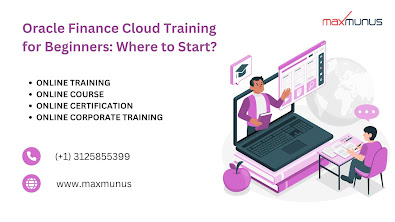What is IBM InfoSphere DataStage used for?
In today's data-driven world, businesses rely heavily on efficient data management solutions to streamline their operations, gain insights, and make informed decisions. Among the array of tools available, IBM InfoSphere DataStage stands out as a robust and versatile platform for managing, integrating, and transforming large volumes of data. In this article, we delve into the intricacies of IBM InfoSphere DataStage, exploring its functionalities, applications, and significance in the realm of data management.
Understanding IBM InfoSphere DataStage
At its core, IBM InfoSphere DataStage is an Extract, Transform, and Load (ETL) tool designed to facilitate the seamless movement of data between disparate systems. Whether it's structured or unstructured data, from traditional databases to cloud-based repositories, DataStage empowers organizations to extract valuable insights by harmonizing data from diverse sources.
Key Features of IBM InfoSphere DataStage
Scalability: DataStage offers scalable architecture, allowing organizations to handle massive volumes of data efficiently. It can seamlessly adapt to evolving business needs, ensuring optimal performance even as data requirements grow.
Data Quality Management: One of the standout features of DataStage is its robust data quality management capabilities. It enables users to cleanse, standardize, and enrich data, ensuring accuracy and consistency across the entire data ecosystem.
Parallel Processing: Leveraging parallel processing techniques, DataStage accelerates data integration and transformation tasks, significantly reducing processing time. This parallelism ensures high performance and scalability, essential for enterprise-level data operations.
Integration with IBM Ecosystem: As part of the IBM InfoSphere suite, DataStage seamlessly integrates with other IBM products, such as InfoSphere MDM (Master Data Management). This integration enhances its capabilities and extends its functionality, allowing organizations to harness the full potential of their data assets.
Also Read: What are PLM tools?
Applications of IBM InfoSphere DataStage
Data Warehousing: DataStage plays a crucial role in building and maintaining data warehouses, enabling organizations to consolidate data from various sources for analytical purposes. It ensures data accuracy, integrity, and consistency, laying the foundation for effective decision-making.
Business Intelligence and Analytics: By providing clean, transformed data to analytical tools and platforms, DataStage empowers businesses to derive actionable insights. Whether it's generating reports, conducting predictive analysis, or implementing machine learning models, DataStage serves as a reliable data pipeline for BI and analytics initiatives.
Real-time Data Integration: In today's fast-paced business environment, real-time data integration is paramount. DataStage facilitates real-time data movement and processing, enabling organizations to make timely decisions based on the latest information available.
Enterprise Application Integration (EAI): DataStage serves as a bridge between disparate enterprise applications, facilitating seamless data exchange and interoperability. Whether it's integrating CRM systems, ERP platforms, or legacy applications, DataStage streamlines business processes by ensuring data consistency and coherence.
MaxMunus: Empowering Professionals with IBM InfoSphere MDM Training
In the realm of data management, proficiency in IBM InfoSphere MDM (Master Data Management) is highly valued. MaxMunus, a renowned provider of IT training solutions, offers comprehensive IBM InfoSphere MDM training courses tailored to meet the evolving needs of professionals.
Through MaxMunus's IBM InfoSphere MDM online courses and certification training programs, individuals can acquire in-depth knowledge and practical skills required to harness the full potential of IBM InfoSphere DataStage and other related technologies. With hands-on experience and expert guidance, participants gain the confidence to tackle real-world data management challenges effectively.
Conclusion
In conclusion, IBM InfoSphere DataStage emerges as a cornerstone in modern data management strategies, empowering organizations to unlock the value of their data assets. From data integration and transformation to ensuring data quality and integrity, DataStage plays a pivotal role in driving business success in today's data-centric landscape. Combined with MaxMunus's specialized IBM InfoSphere MDM training, professionals can elevate their expertise and propel their careers forward in the dynamic field of data management.




Comments
Post a Comment